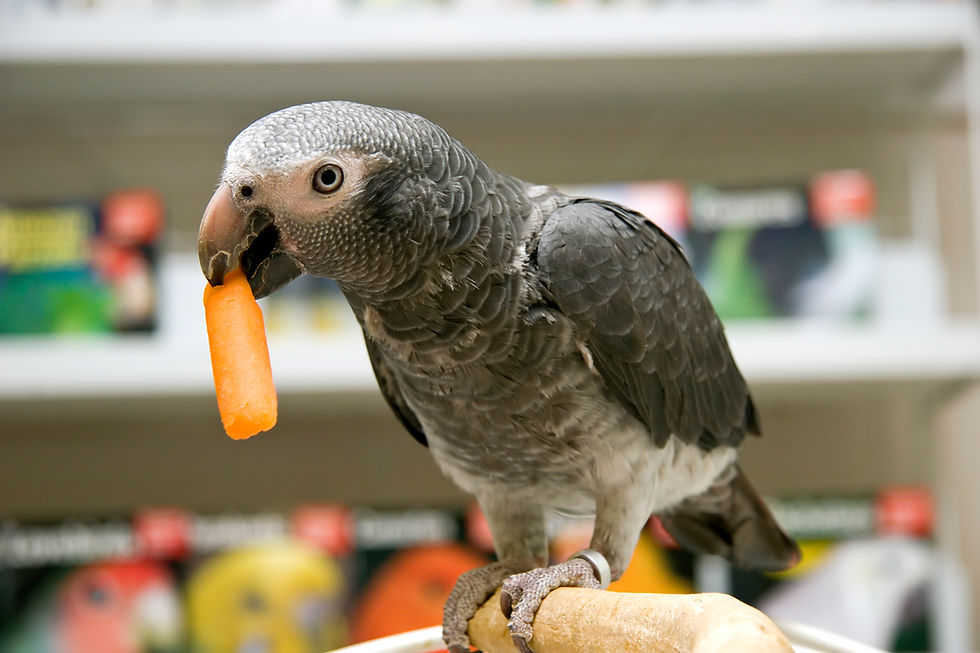Captive Birds
- ekoparrotrescue
- Jan 9, 2016
- 2 min read
Updated: Jan 25, 2021

Captive birds are now facing an epidemic of over population and homelessness. There are not enough homes — especially good homes — for every bird!
Thousands of birds are displaced each year simply because their caretakers can no longer provide the time and attention they require — either because they were not educated about the commitment that bird care demands or because their lives and interests change. Many of the larger species can live 40-80 years and often outlive their caretakers. Other parrots are rescued from living in uncaring, neglectful, or abusive situations.
Birds are Wild at Heart!
Even when bred in captivity, parrots and other exotic birds are not domesticated animals; they are the native species of other countries, and all their inherent behavioral and physical needs (to fly and to flock, for example) remain intact.
Like other exotic wild animals, captive parrots display natural instincts, needs, and behaviors—crucial for survival in their native habitats—that are not considered desirable “pet” qualities. The realities and difficulties of living with a parrot cause many unprepared caretakers to become disenchanted and seek to rid themselves of the responsibility of providing lifetime care.

What Happens to Unwanted Captive Birds.
Many unwanted birds become victims of neglect or abuse; they are banished to basements, passed from home to home, relinquished to shelters, abandoned or set free to fend for themselves, or euthanized. Others end up in breeding facilities that are little more than warehouses in which birds are held in barren cages for mass production.
The lucky ones end up in shelters that carefully screen and educate potential adopters, or in sanctuaries where they can choose to enjoy the companionship of humans and live among other birds. Such quality shelters and sanctuaries are filling up fast!
How You Can Help! Don’t Buy, Don’t Breed, ADOPT!

You can help solve this problem by not breeding birds and by adopting a displaced bird rather than buying one from a pet store or breeder — but only if you are ready to make a lifetime care commitment. There are many birds in captivity who cannot be returned to the wild and need our care.
Spreading the word about bird overpopulation and adoption to your fellow bird lovers will help thousands of displaced parrots find knowledgeable, well-prepared homes —or in special health or behavior cases, to be placed into sanctuaries to live out their lives on their own terms.
A final word…
Captive birds cannot be returned to the wild since they do not possess the learned skills necessary to survive; nor can they be set free to fend for themselves.
We have an ethical responsibility to provide the best care possible for those living in captivity. Birds deserve the same efforts to promote public education, protective legislation, sheltering, and placement afforded to domestic pets and other wild animals.

Info from birdadoption.org










Comments